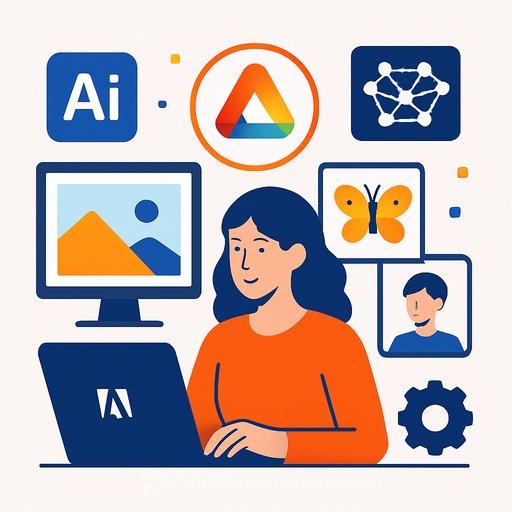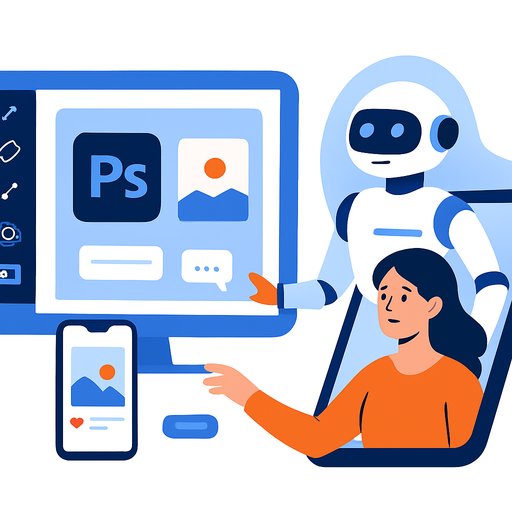Behind the Agenda: Creativity and Legitimacy in the AI Era
AI is changing more than just how creative work is done. It’s reshaping the very standards by which creative value is judged. This shift is redefining success in the media economy, influencing tool adoption, creative integrity, and competitive advantage.
The 2025 IBC Conference covers a wide range of themes, including AI in creative workflows, trust, disinformation, and long-term differentiation. A standout technical paper titled “Creative identity in the Age of AI: examining technical and cultural dynamics in post-production workflows” by Timothy Last and Anna Lidster offers a clear perspective on how these topics interconnect.
Industry discussions often frame AI as either an enabler or a threat at the process level. While this helps identify operational success factors, it misses a deeper change. AI is not just about efficiency or new tools; it's shifting how creativity itself is defined. Trust and legitimacy are now inseparable from creative value and are crucial for survival in the new media economy.
Creativity as a Competitive Edge
Creativity has long been a key differentiator in media, enduring through changes in platforms and audience habits. Despite audience fragmentation, broadcasters still dominated the top UK viewing figures in 2024. Shows like Gavin & Stacey: The Finale attracted 18.6 million viewers, proving that distinct, unmissable creative moments remain powerful.
Distinctiveness—creating something unique and irreplaceable—is a core feature of creativity, alongside novelty and value. Subscription audiences highlight this preference. According to Ofcom’s 2025 report, 36% of Netflix subscribers value “content not available elsewhere,” and 35% seek “something different to broadcast TV.” Disney+ subscribers also emphasize exclusivity. These preferences reflect why creativity, expressed through distinctiveness and novelty, continues to be a major driver of competitive advantage.
Data and AI: Tools, Not Guarantees
The media industry is increasingly turning to AI and analytics to boost creative work. Research shows that combining creativity with analytics outperforms either alone. FOX’s 2025 Super Bowl coverage, for example, gained an extra 13.6 million viewers through a partnership with Tubi, leveraging data for creative impact.
However, optimizing processes won’t ensure long-term resilience. AI tools become widely accessible quickly, leveling the playing field. The real advantage will come from defining and defending what counts as creativity in ways audiences trust.
Creativity, Trust, and Legitimacy
The IBC2025 technical paper argues that generative AI is moving from mere information processing to meaning-making. Humans and machines now share creative work, blurring authorship and skill boundaries. This calls for a reassessment of the social norms and moral frameworks that define legitimate creative work.
Creative value emerges through interpretation, influenced by originality, authorship, transparency, and cultural resonance. The 2024 incident where an AI-generated photograph initially won a major art competition but lost legitimacy once its origin was revealed highlights this point. The image didn’t change, but its perceived value did.
As production norms evolve, so do the criteria for recognizing creativity. Originality and distinctiveness remain important, but in an AI-rich environment, the process and the trust it builds become decisive in judging worth.
Examples from the Industry
Broadcasters like ITV provide a clear example. Their 2025 results credited growth in digital ad revenue and audience share to “high-quality, trusted content.” Combining distinct creative output with a transparent value framework shows how creativity backed by legitimacy can deliver lasting advantage.
Trust is not just a bonus; it’s essential for creativity to act as a differentiator. In the AI-driven media landscape, legitimacy will determine who succeeds. Organizations that clearly define and consistently defend their creative standards will have the upper hand.
What to Expect at IBC2025
The upcoming IBC2025 will focus on AI, creativity, and trust as intertwined forces shaping media’s next phase. Sessions will feature leaders who are redefining creativity beyond speed and cost, emphasizing what audiences truly value and trust.
- Netflix: Empowering Creativity Through Innovation with Victor Marti and Migue Amoedo – 13 September, 10:00-10:40, Conference Room 1
- MovieLabs: Leading the Vision with Richard Berger, Eddie Drake, James Crossland, and Yoshikazu Takashima – 13 September, 12:45-13:15, Conference Room 1
- Fighting Disinformation and Disengagement: Staying Relevant in the Digital Age with Antonia Kerle, Emily Shelley, Laura Rhea, Maxime Carboni, and Raed Fakih – 13 September, 14:15-15:00, Conference Room 1
- Media 2025: Winners and Losers in the New Content Ecosystem with Thomas Gruber and Jens Richter – 14 September, 10:15-11:15, Conference Room 1
Secure your delegate pass to join these conversations and explore how AI is reshaping creativity and trust in media.
Your membership also unlocks:





